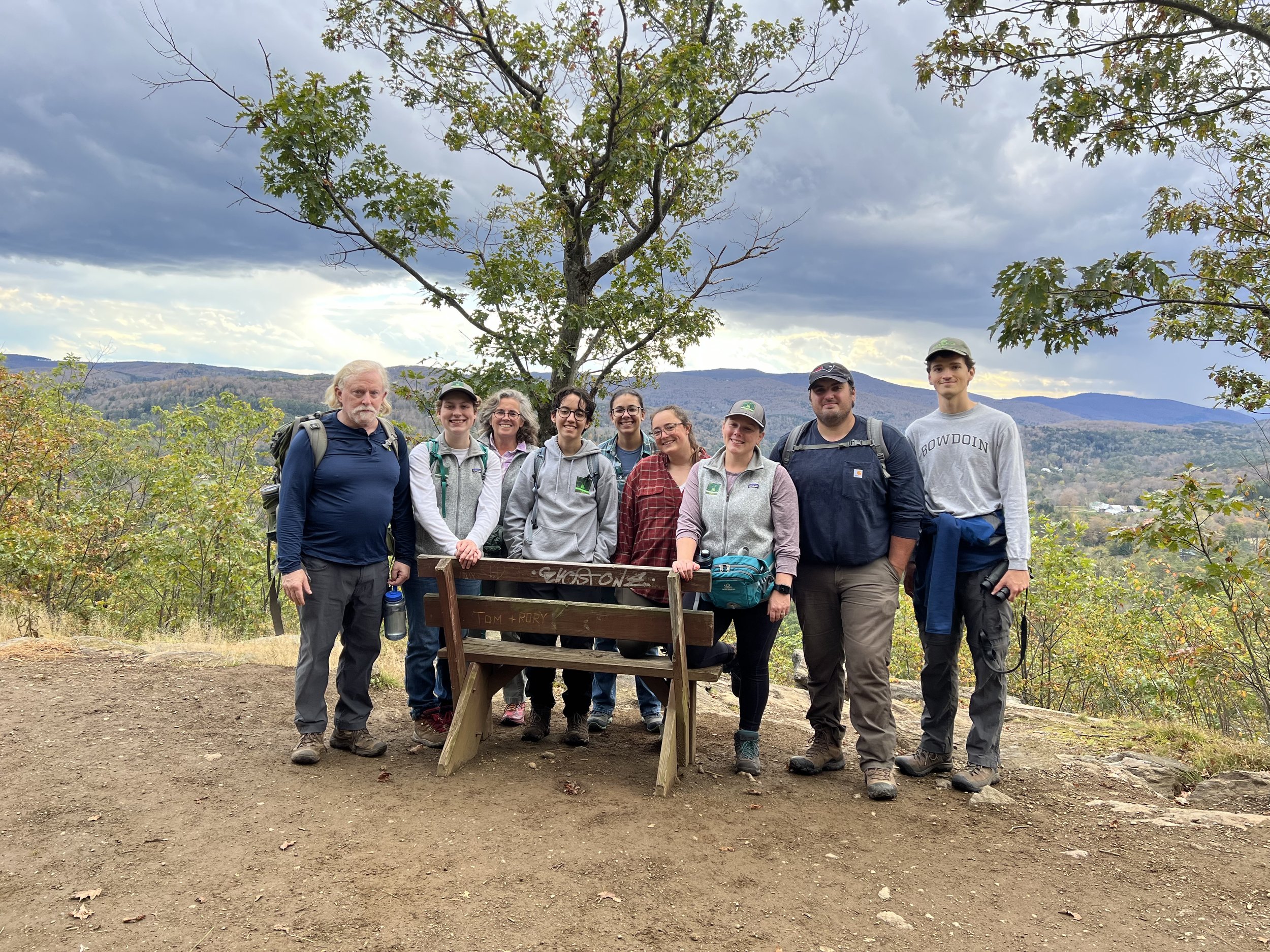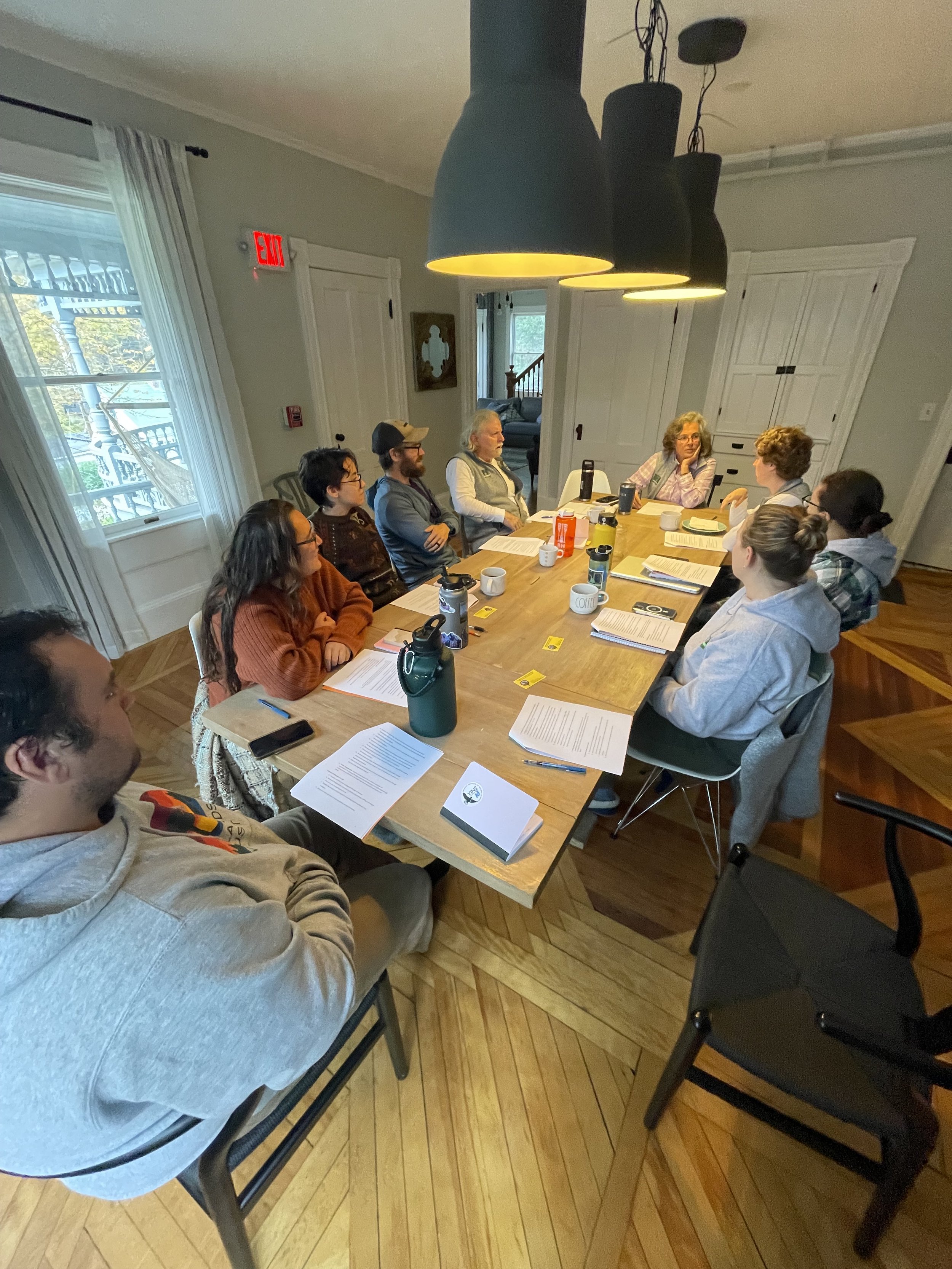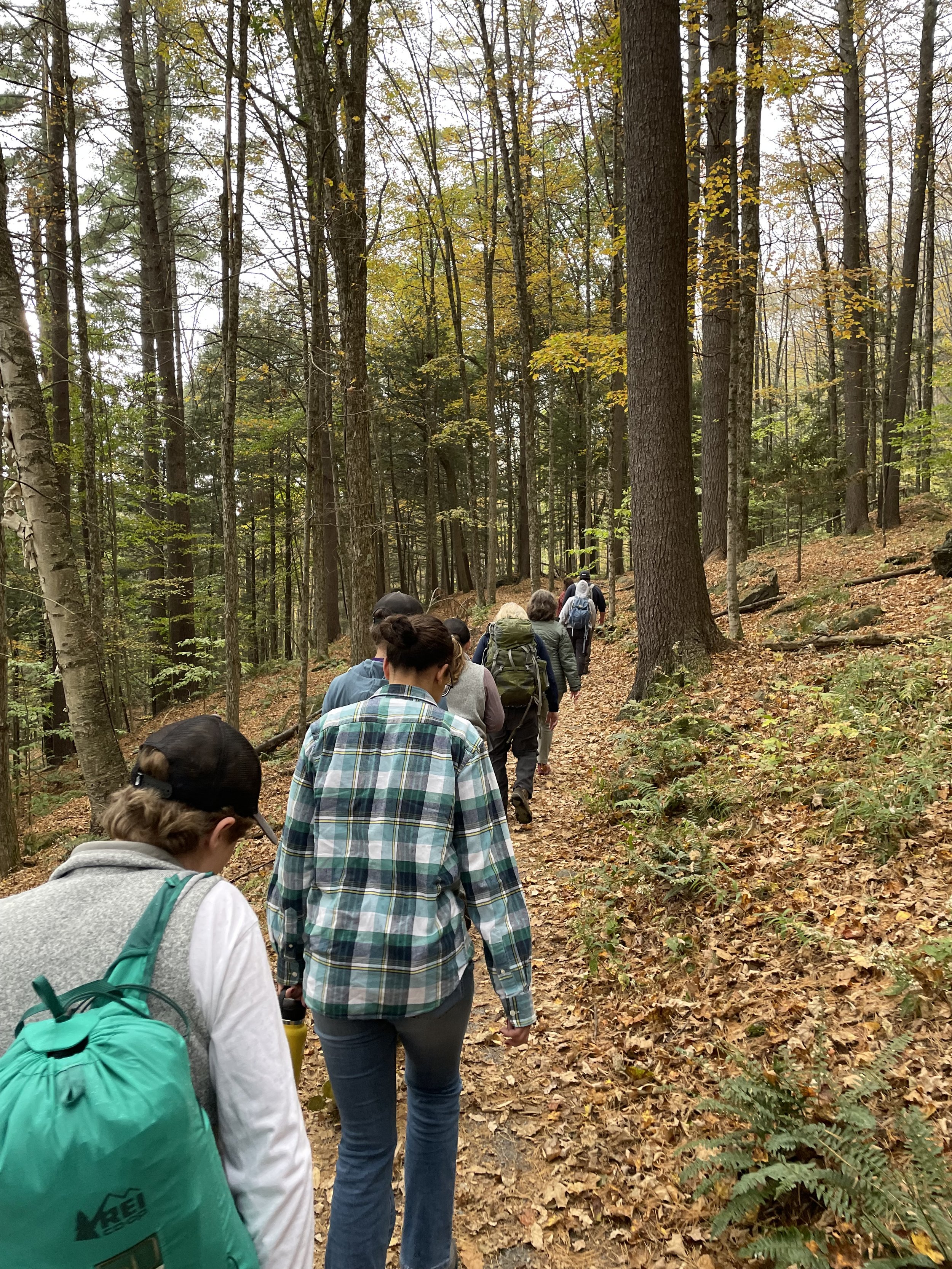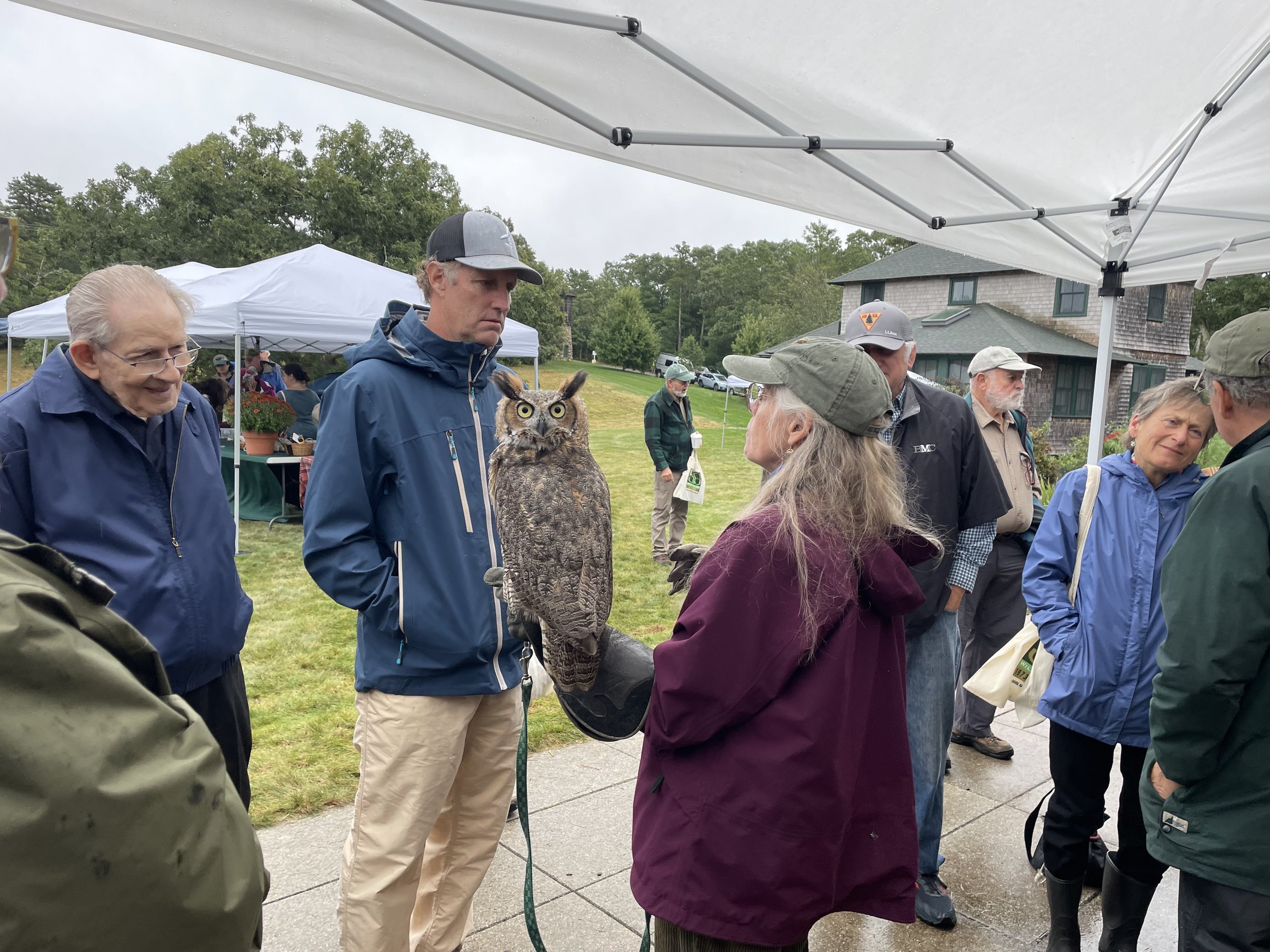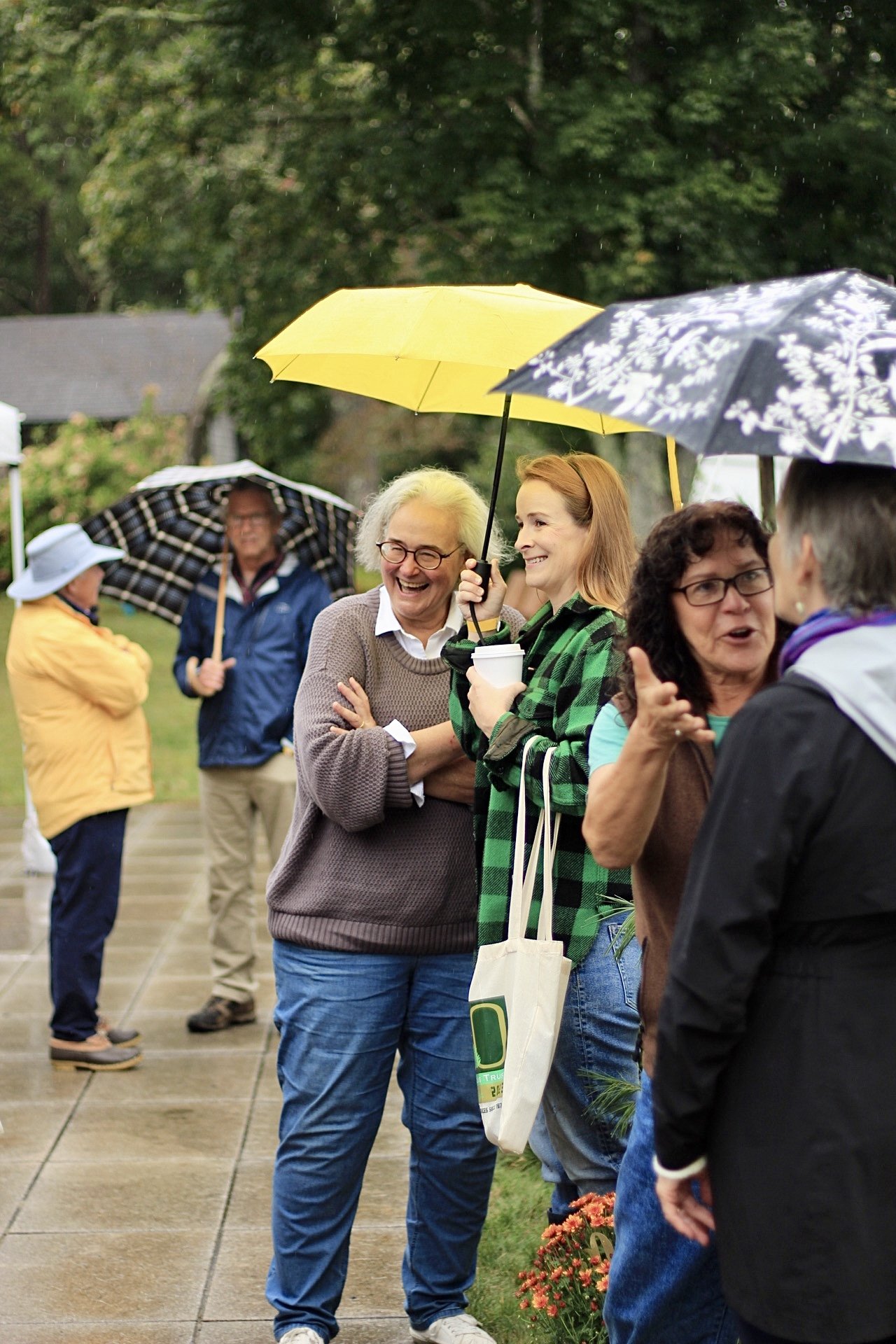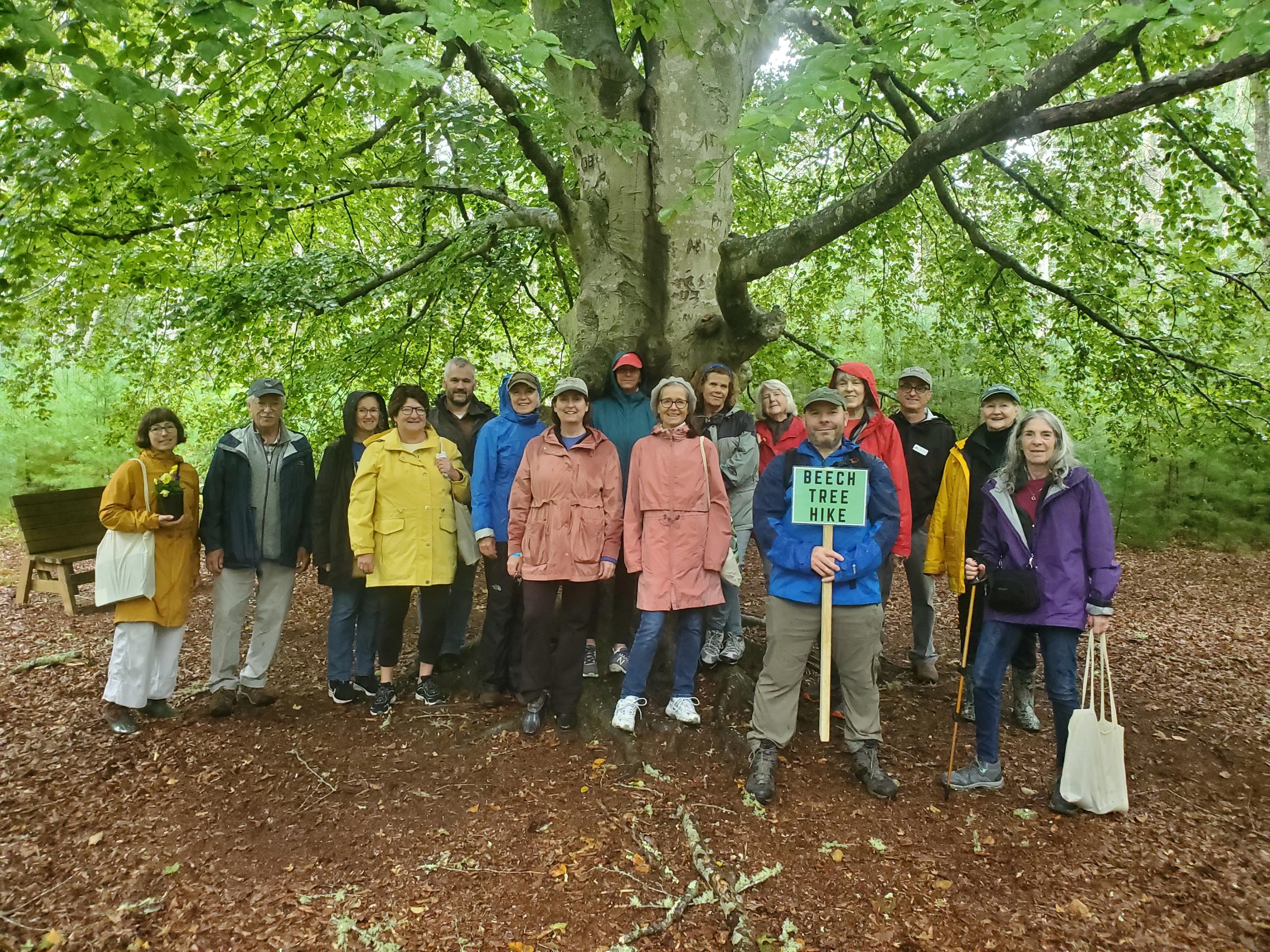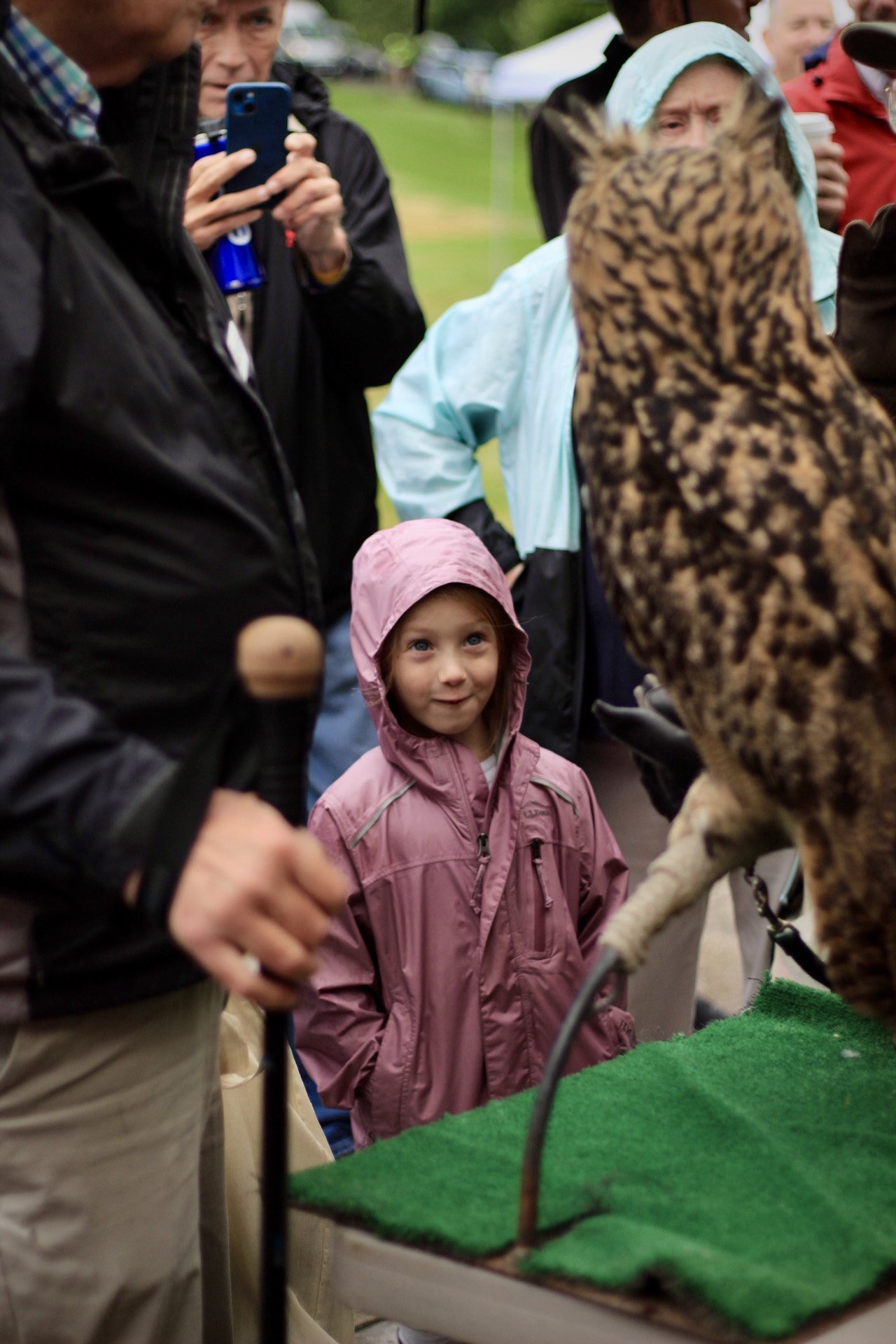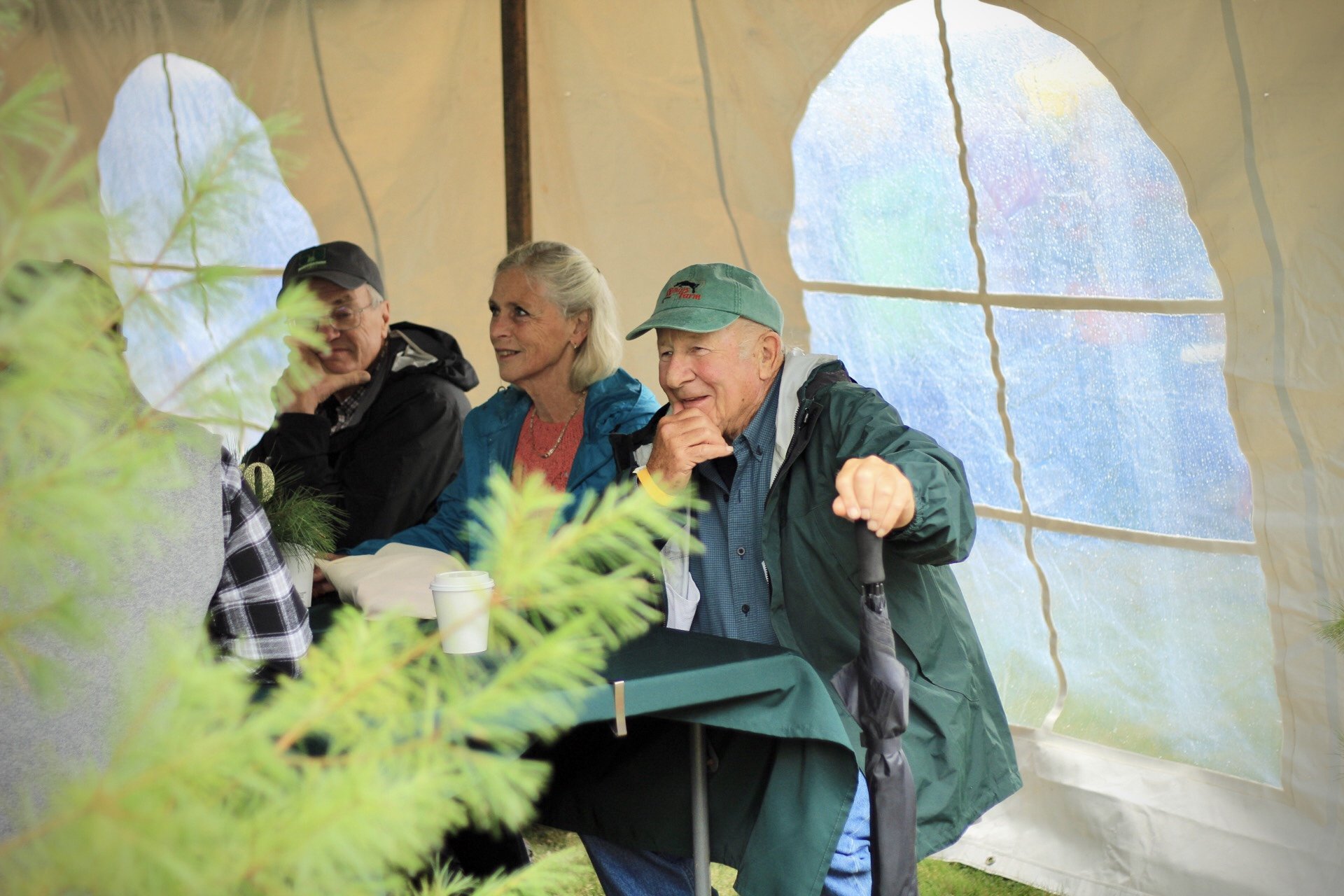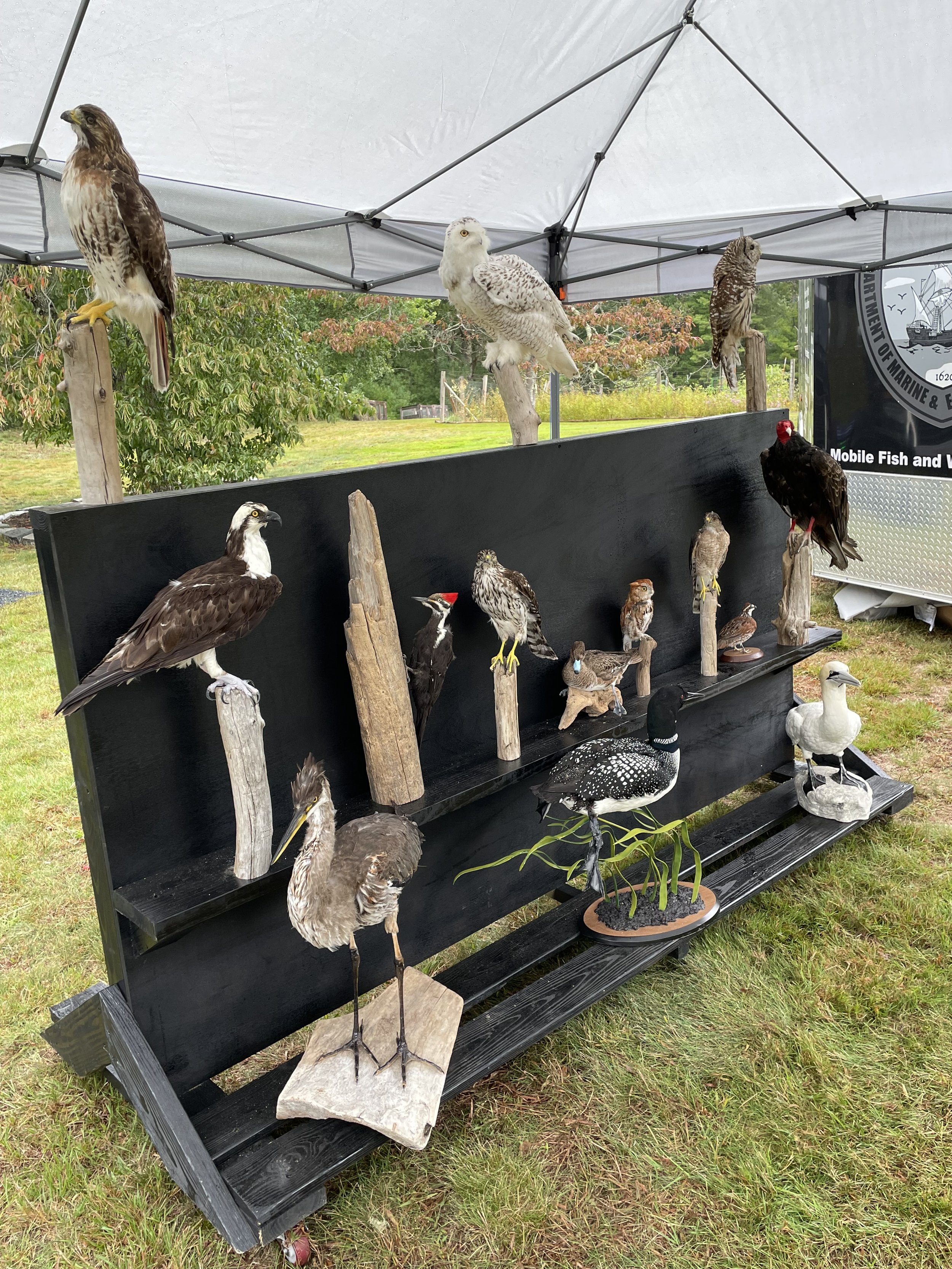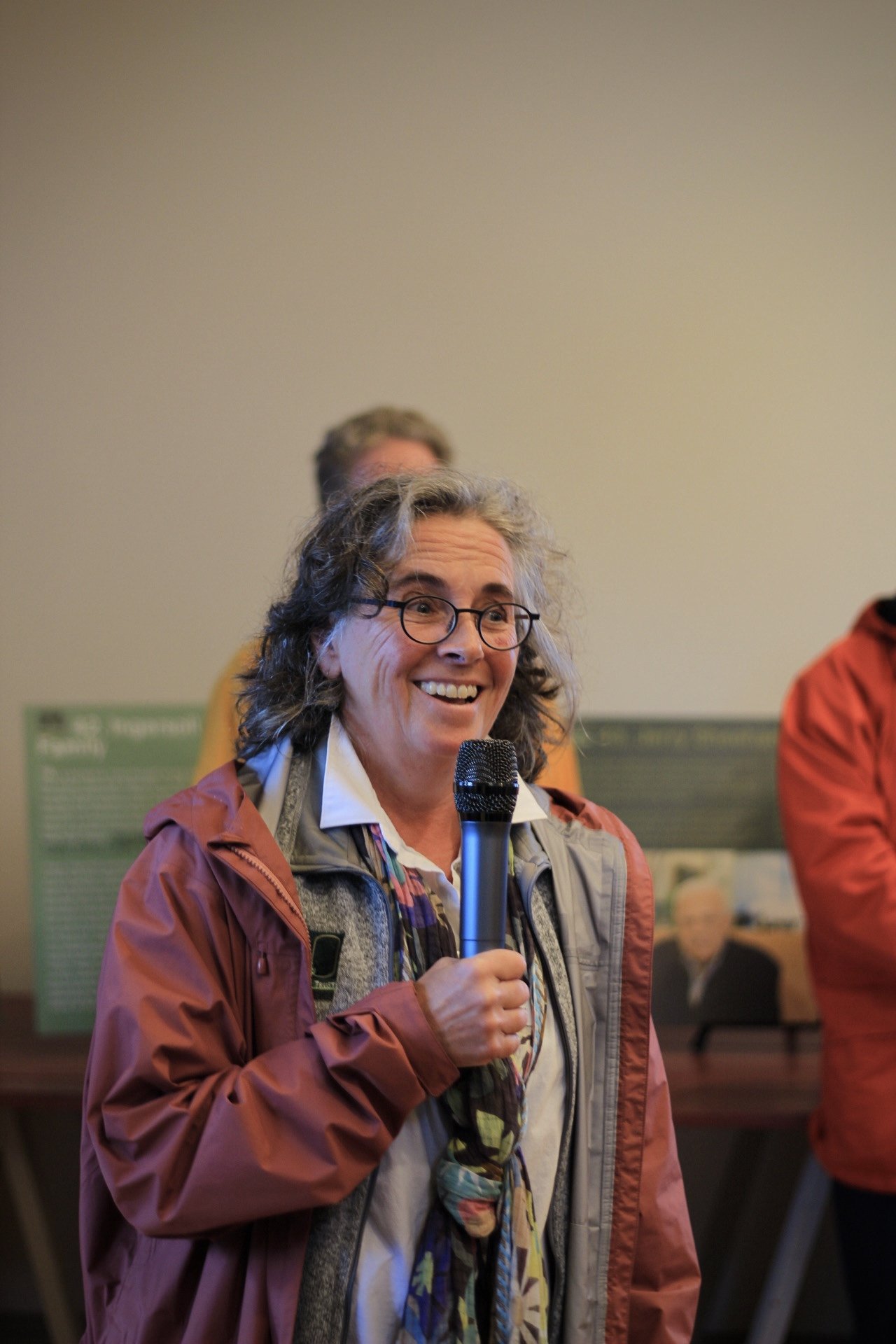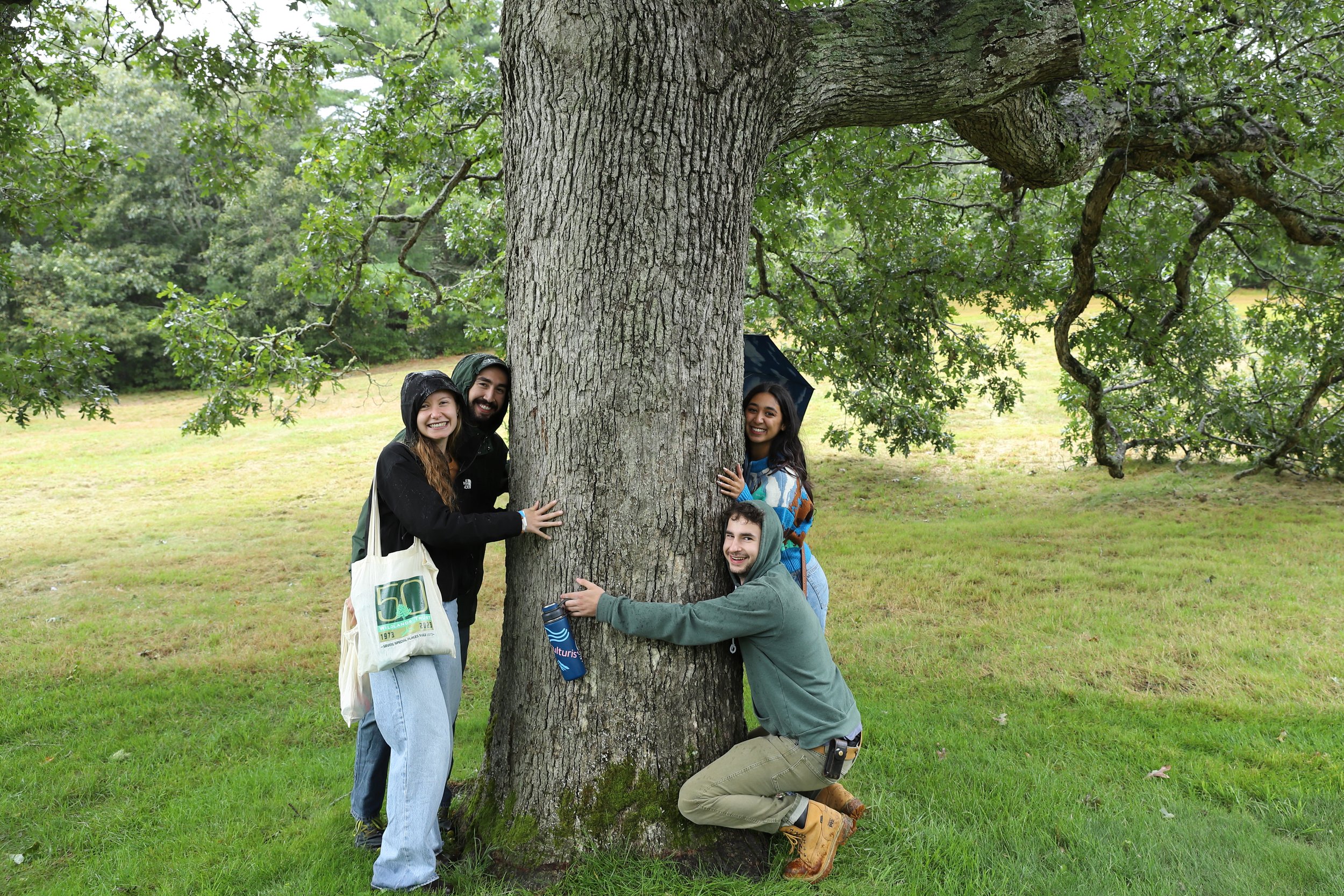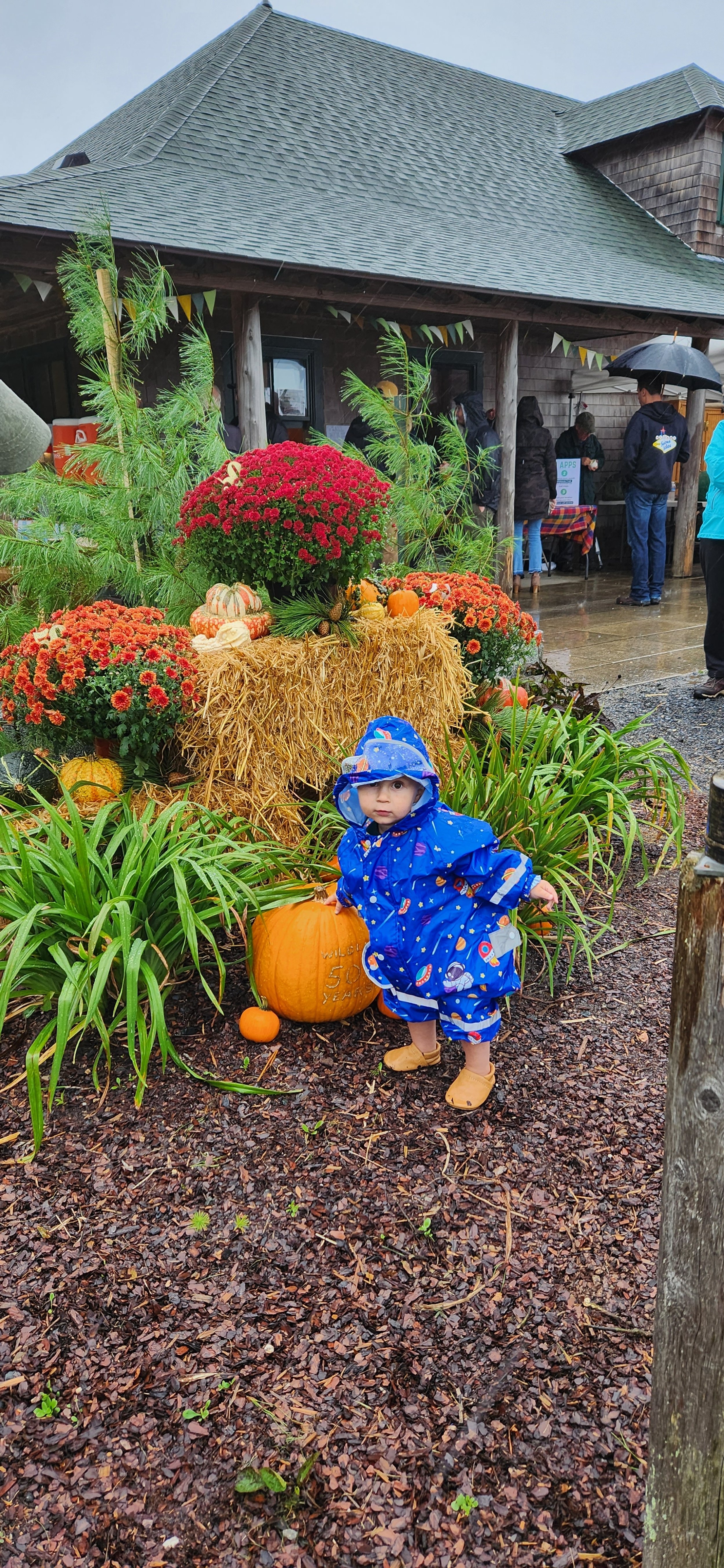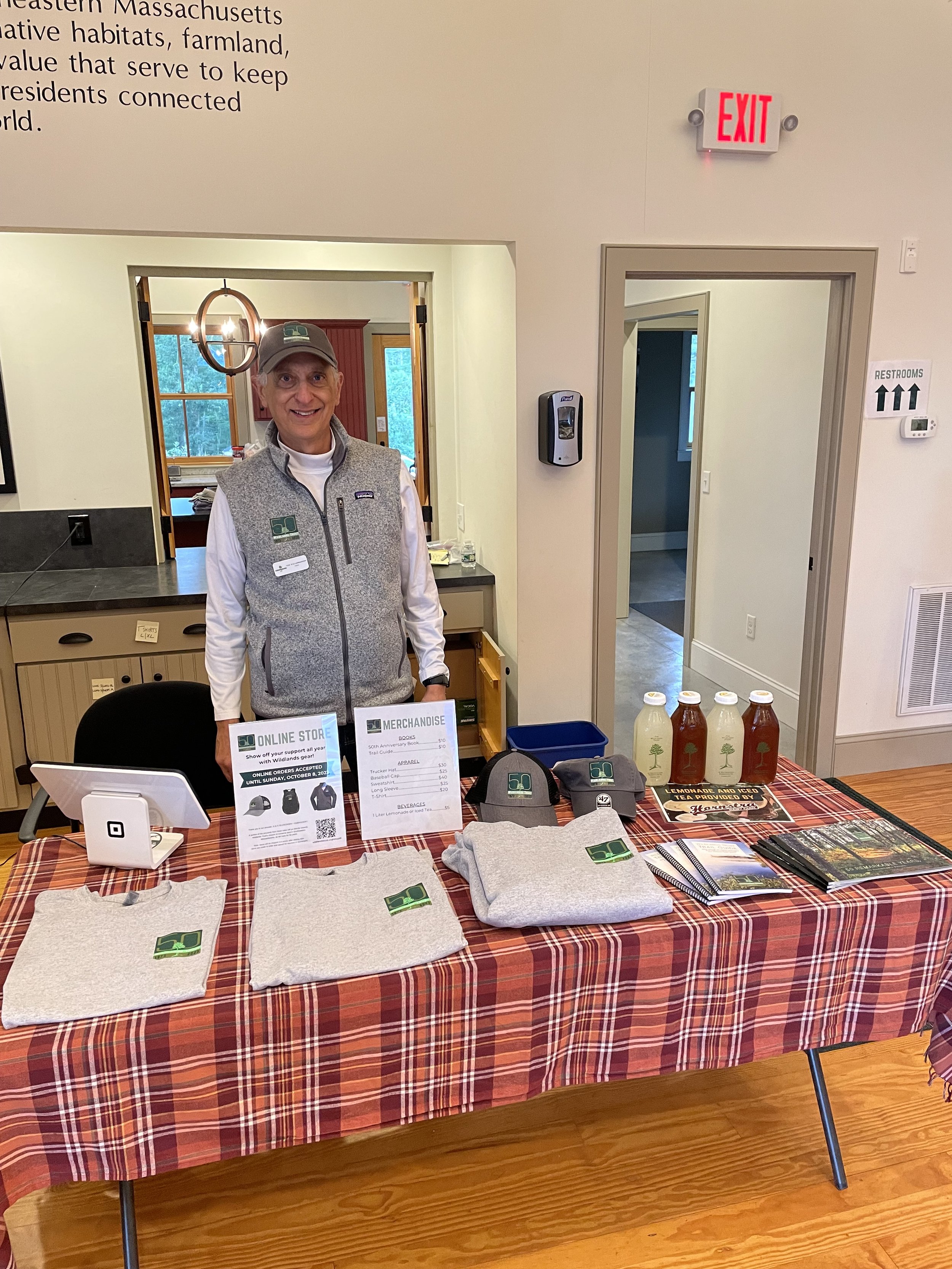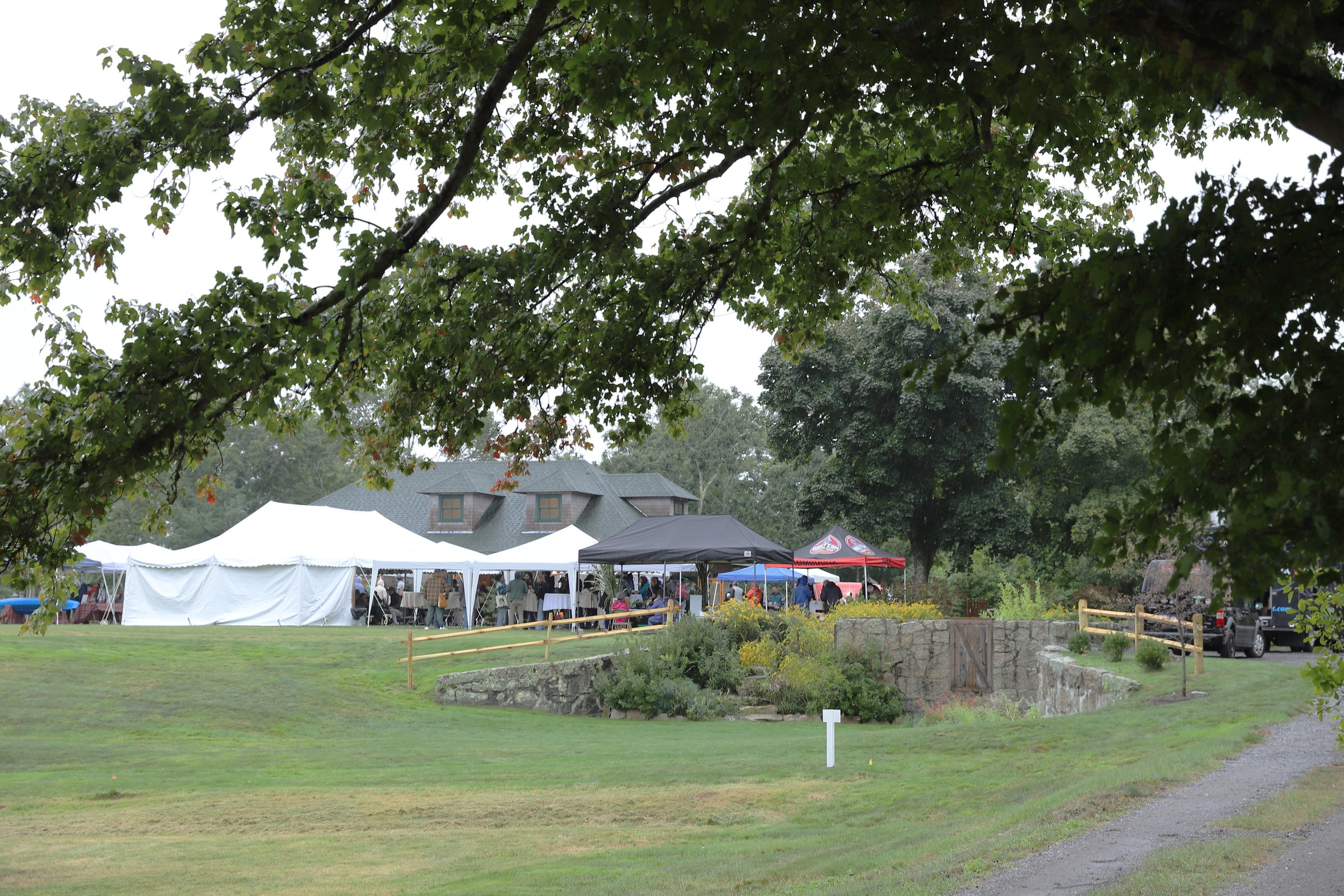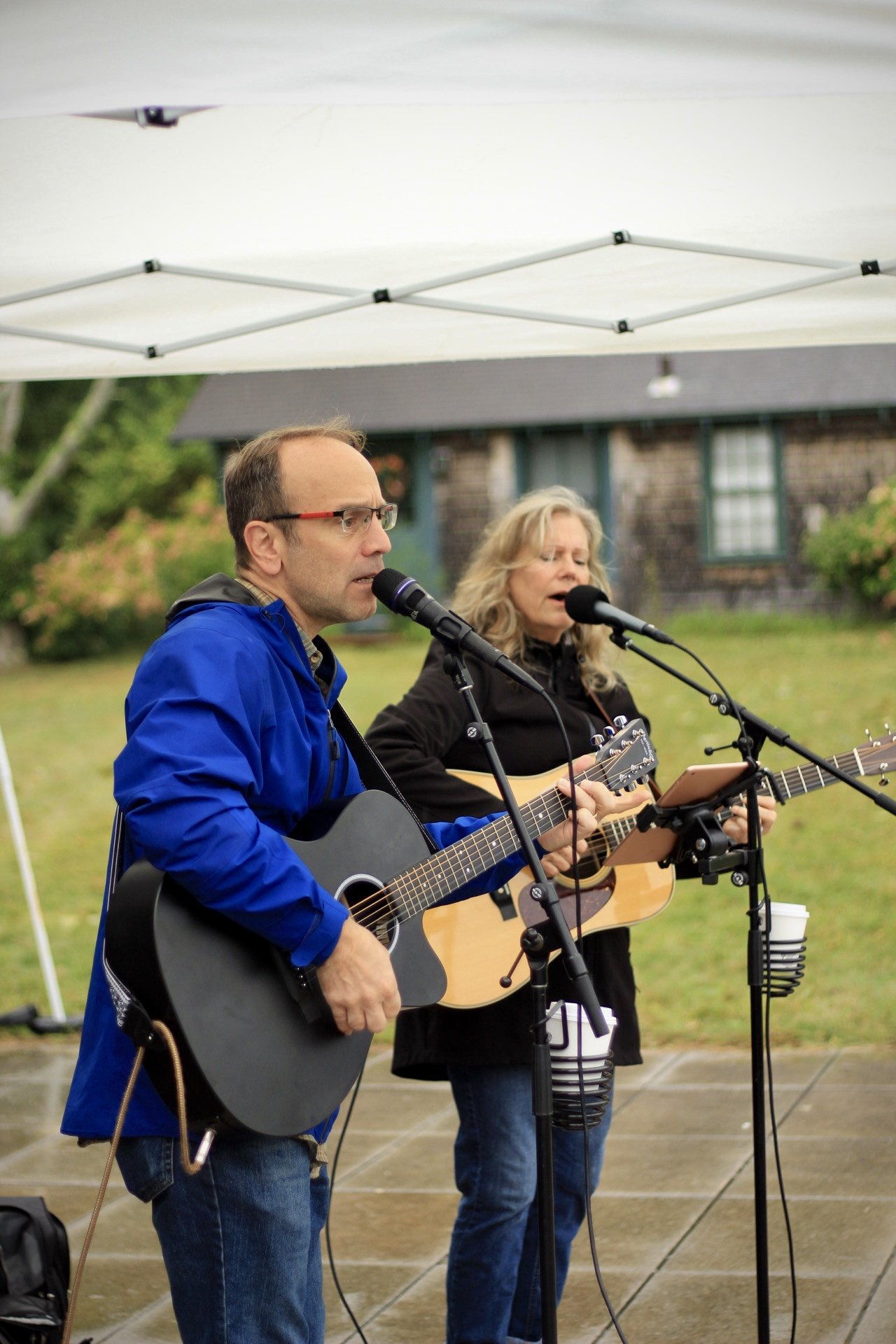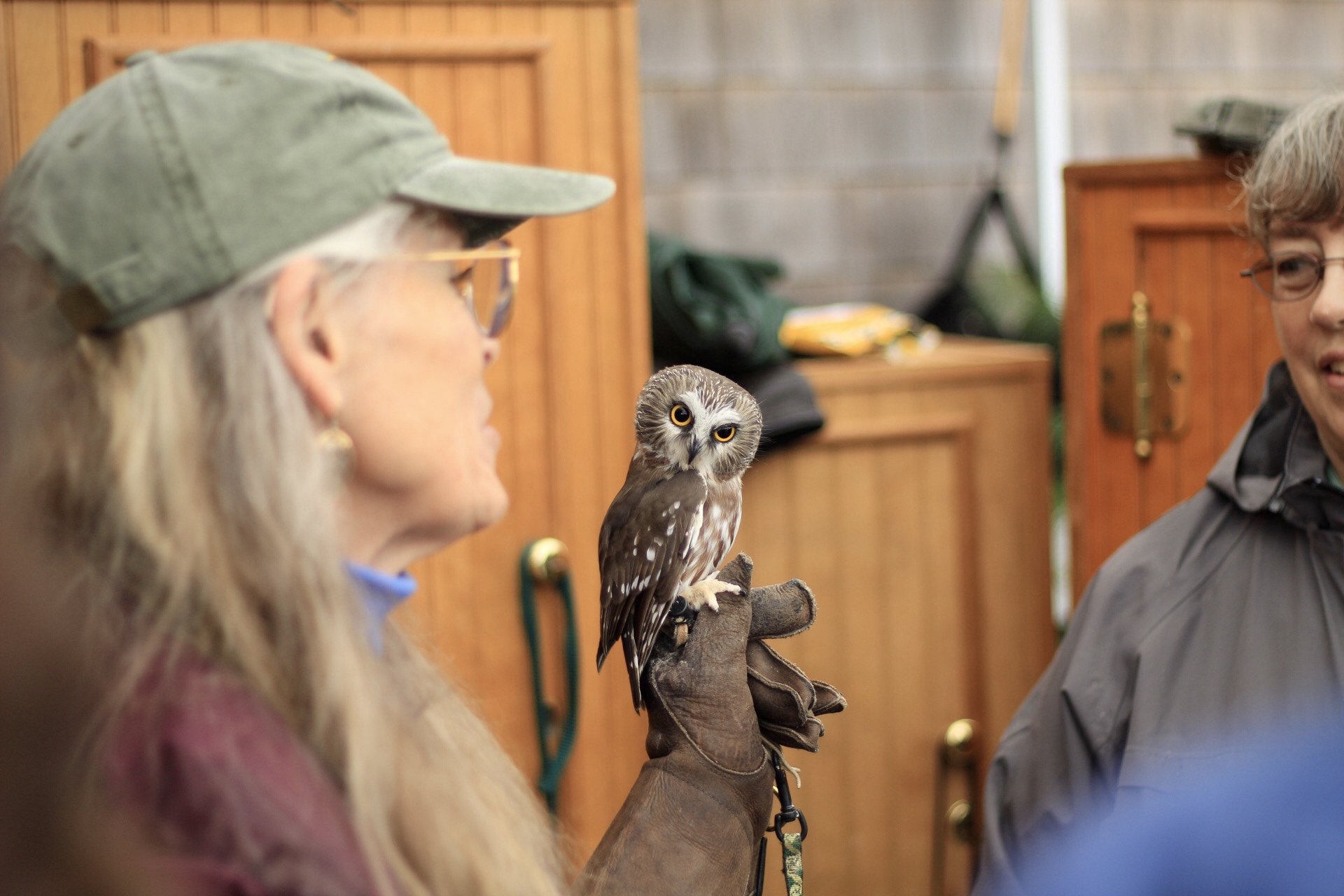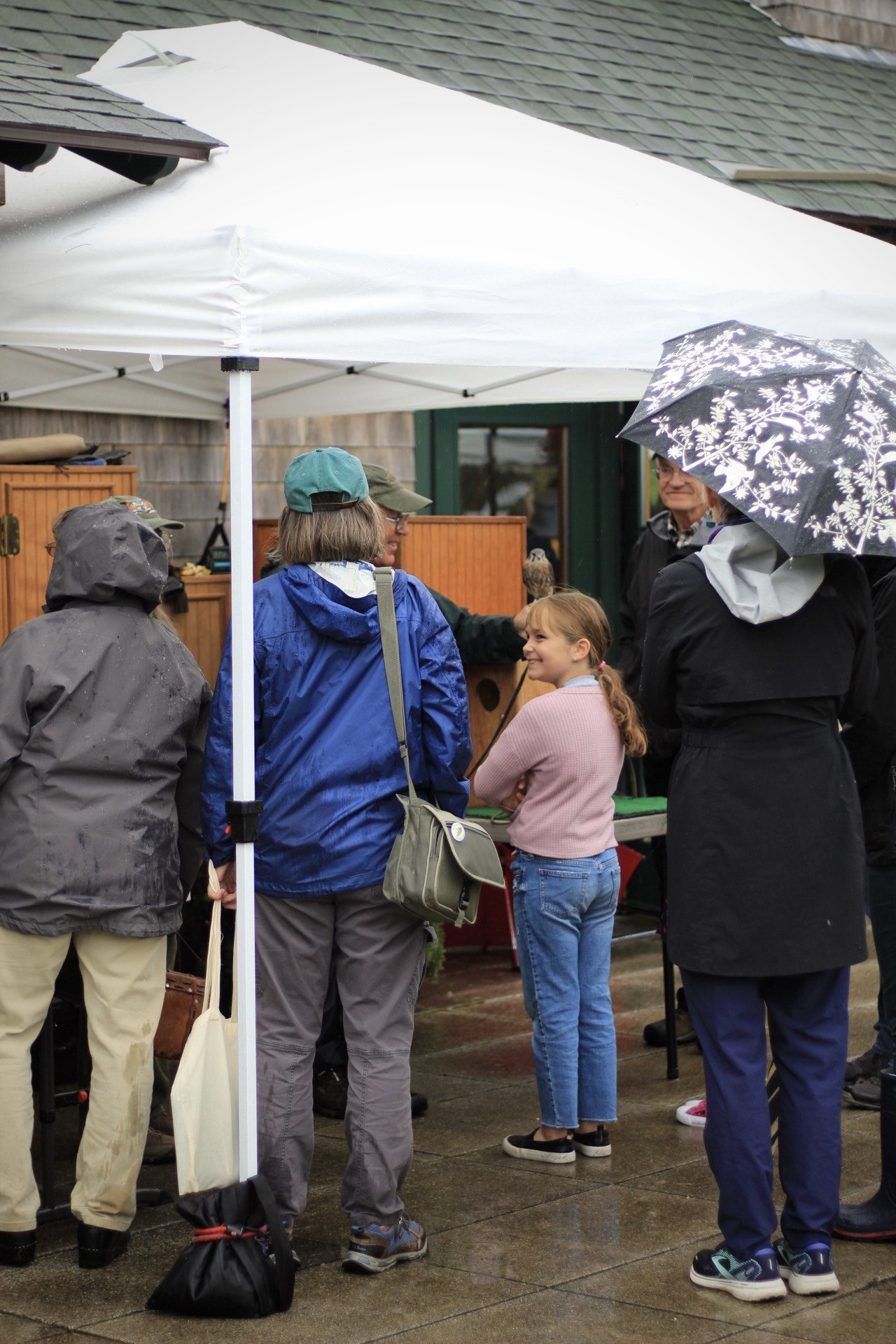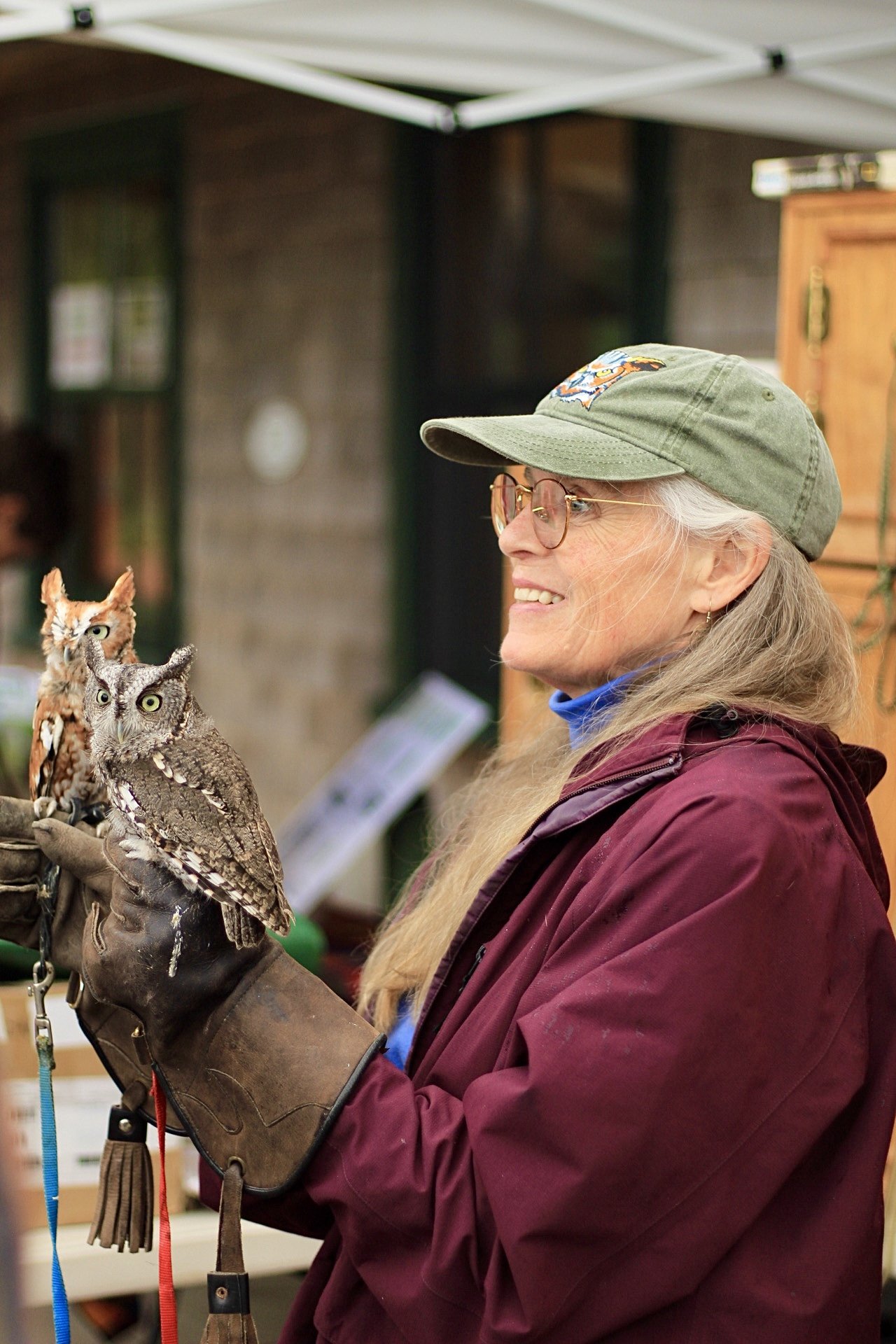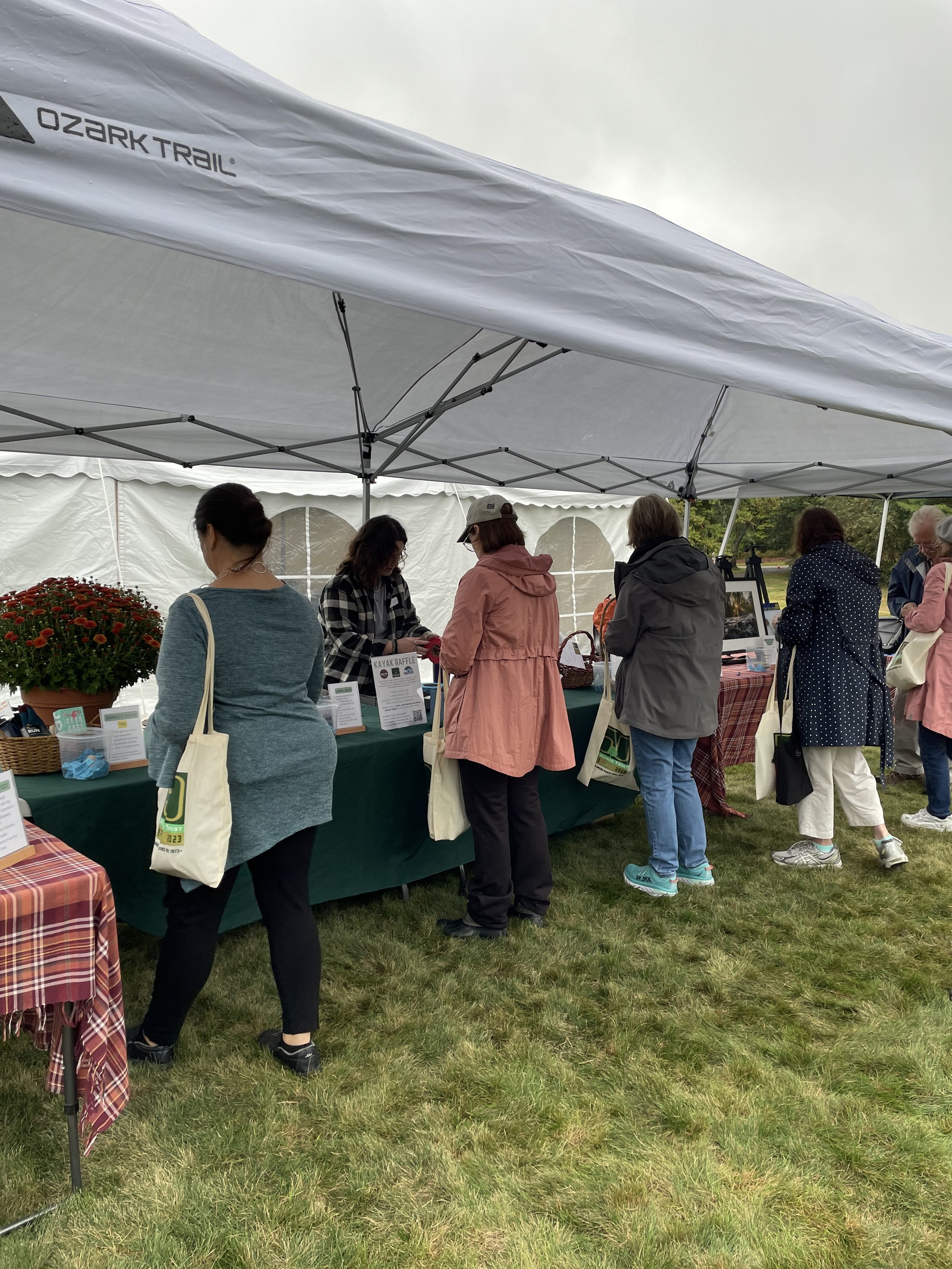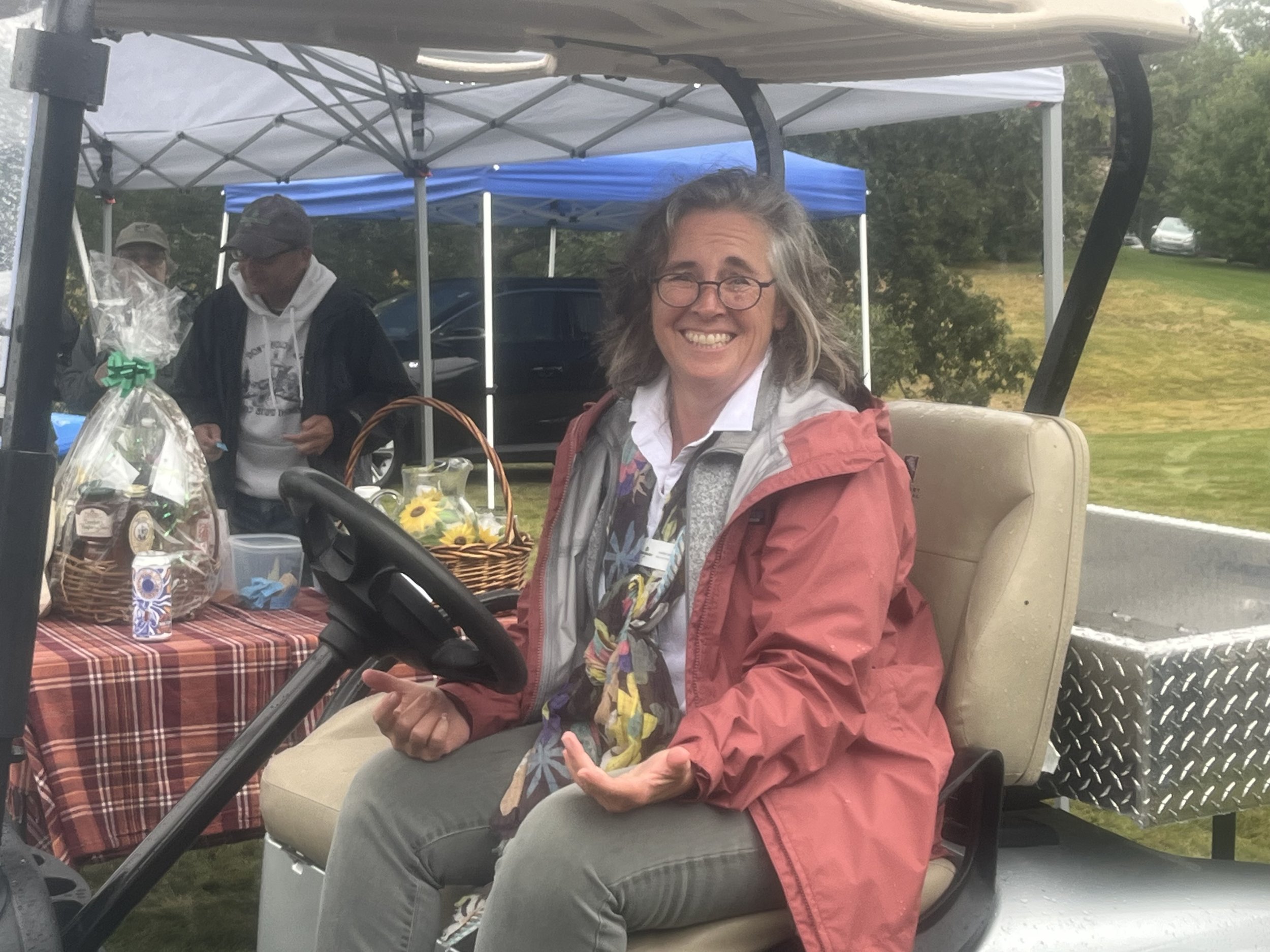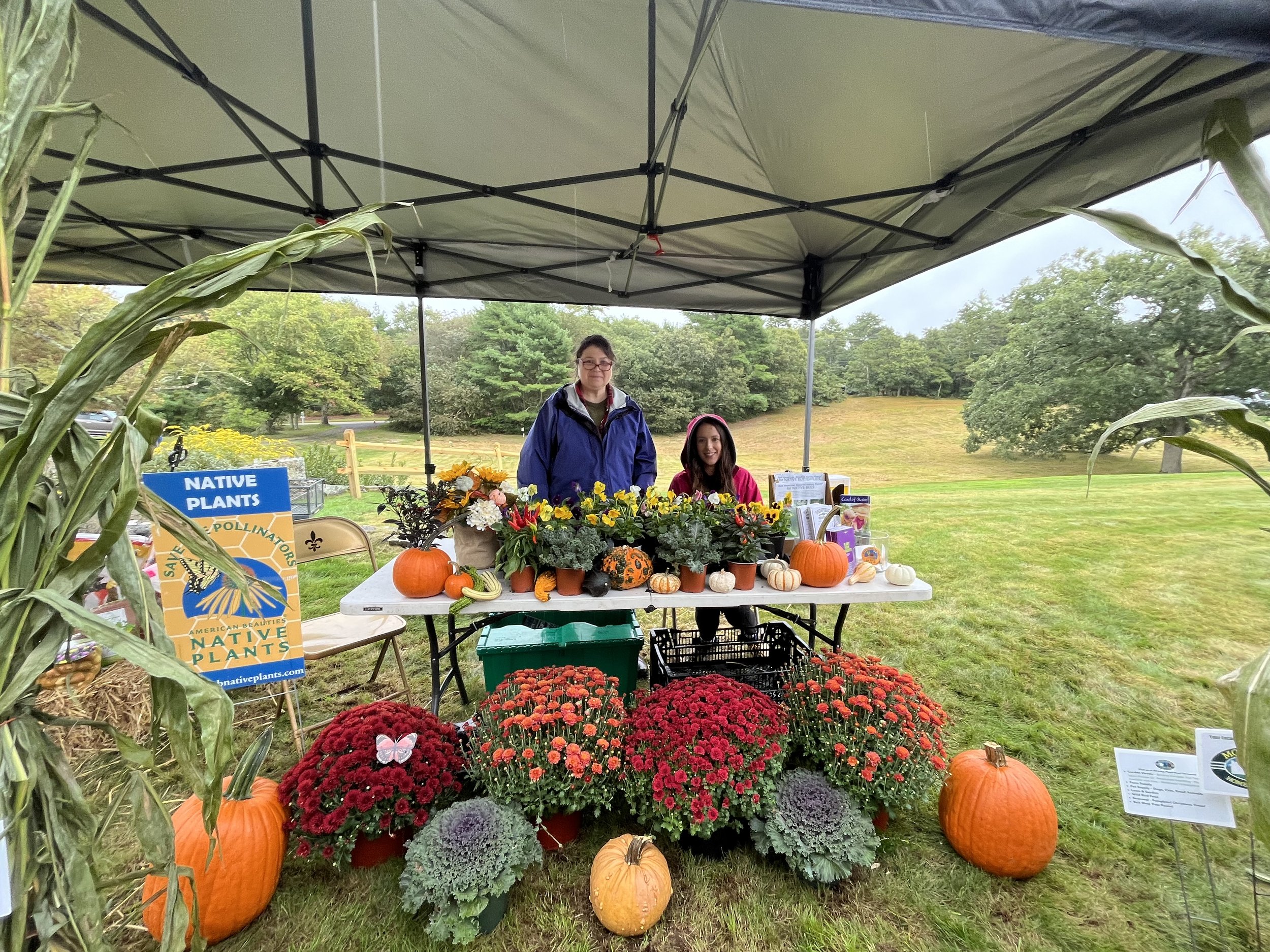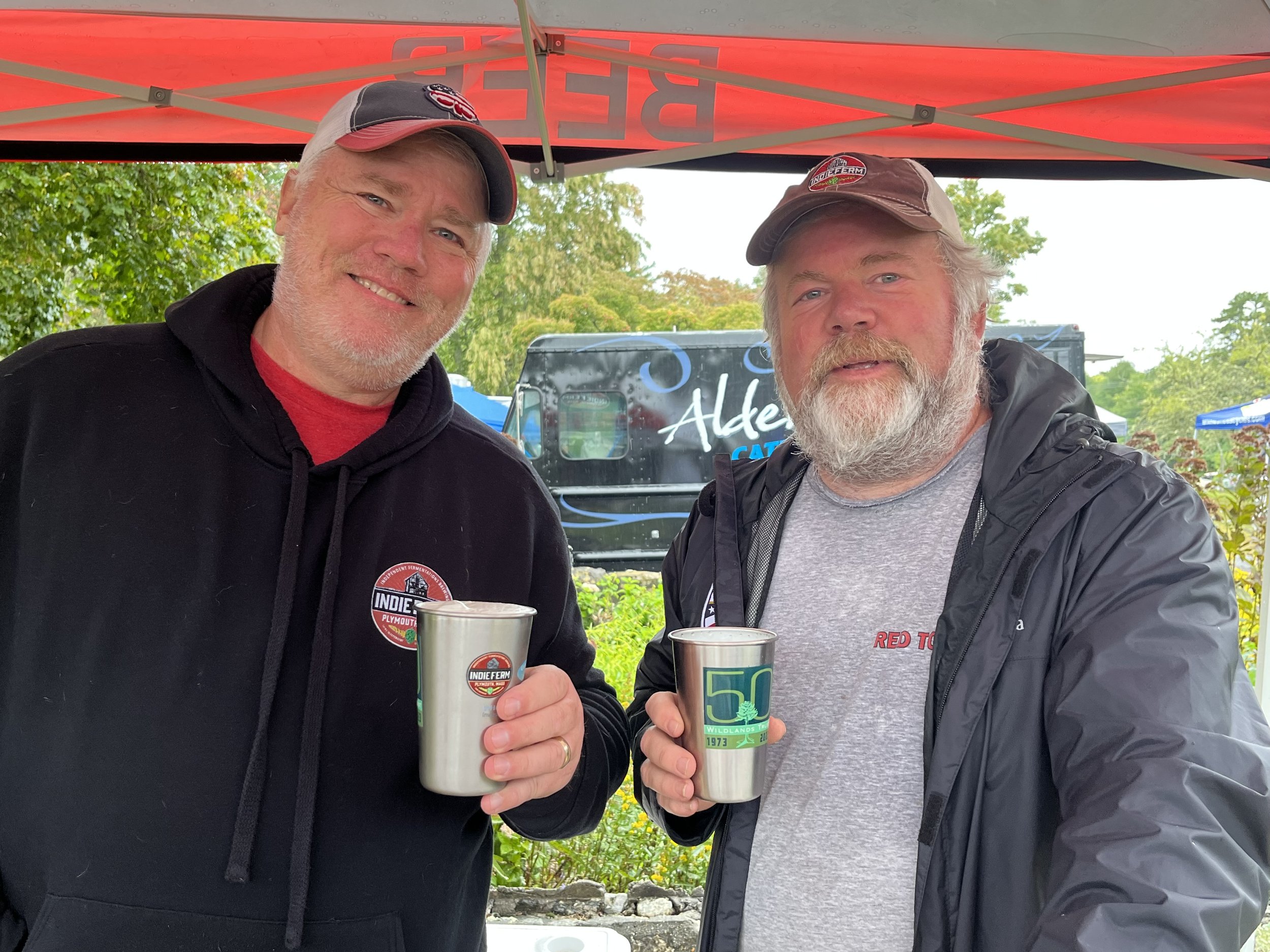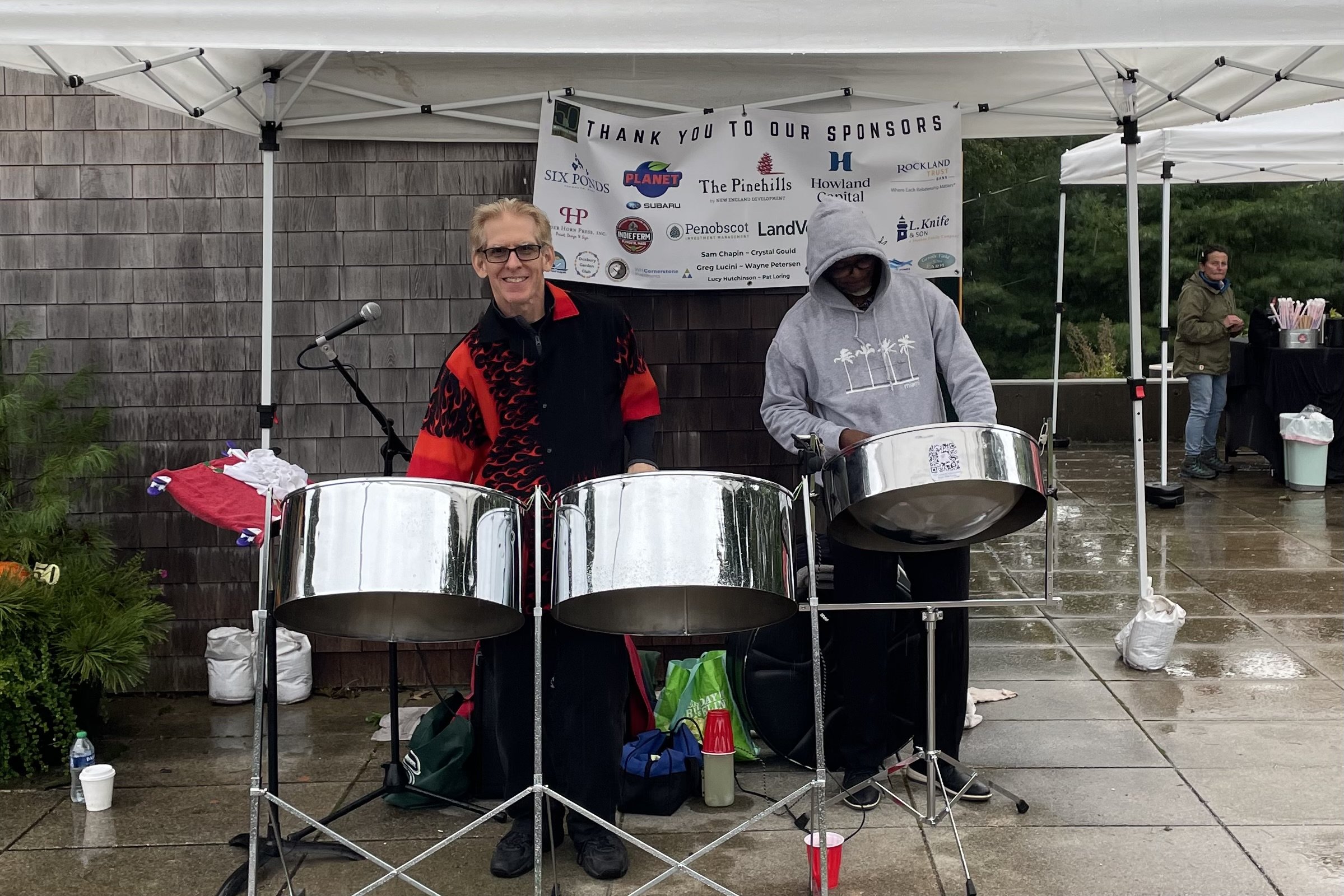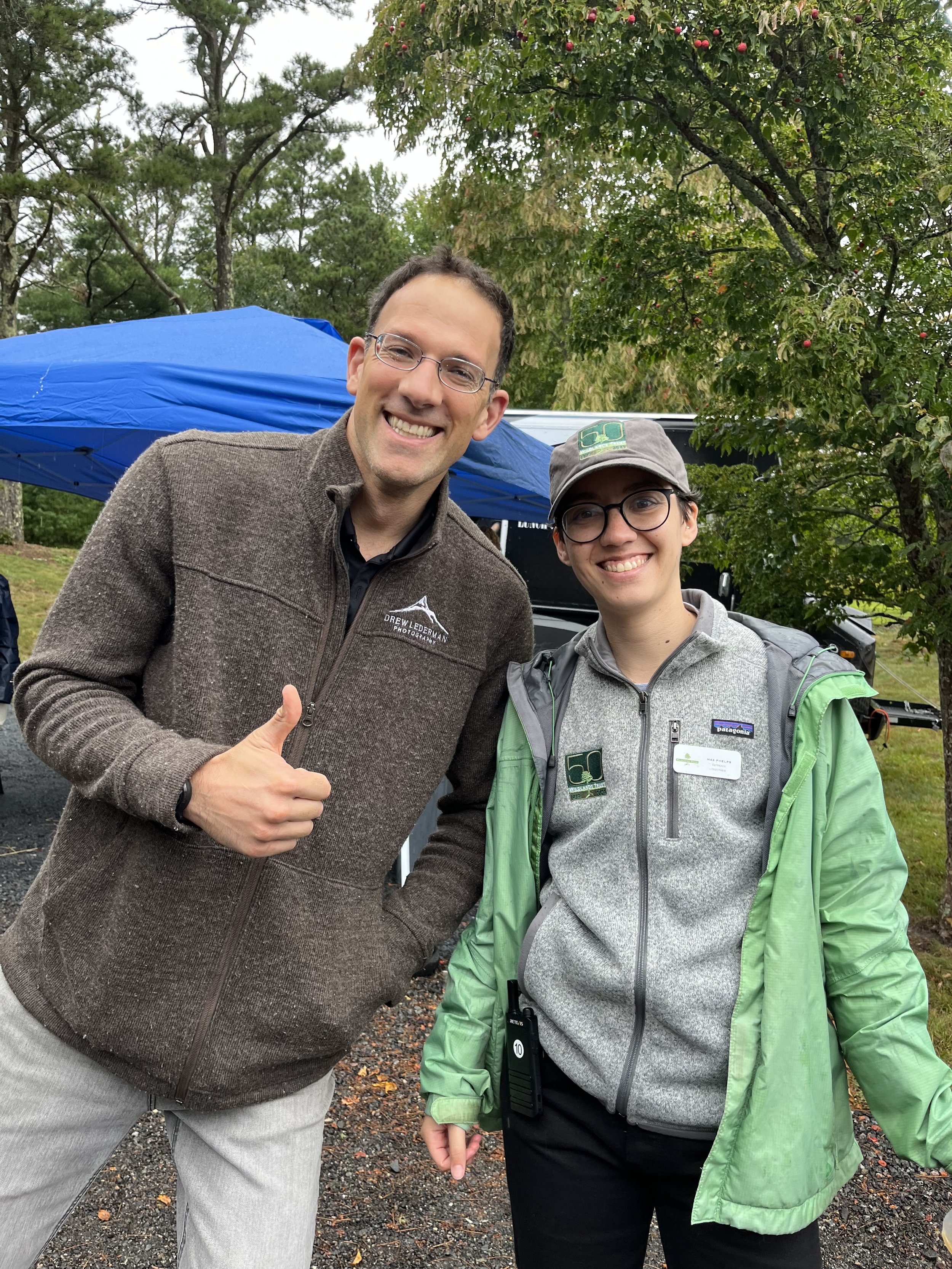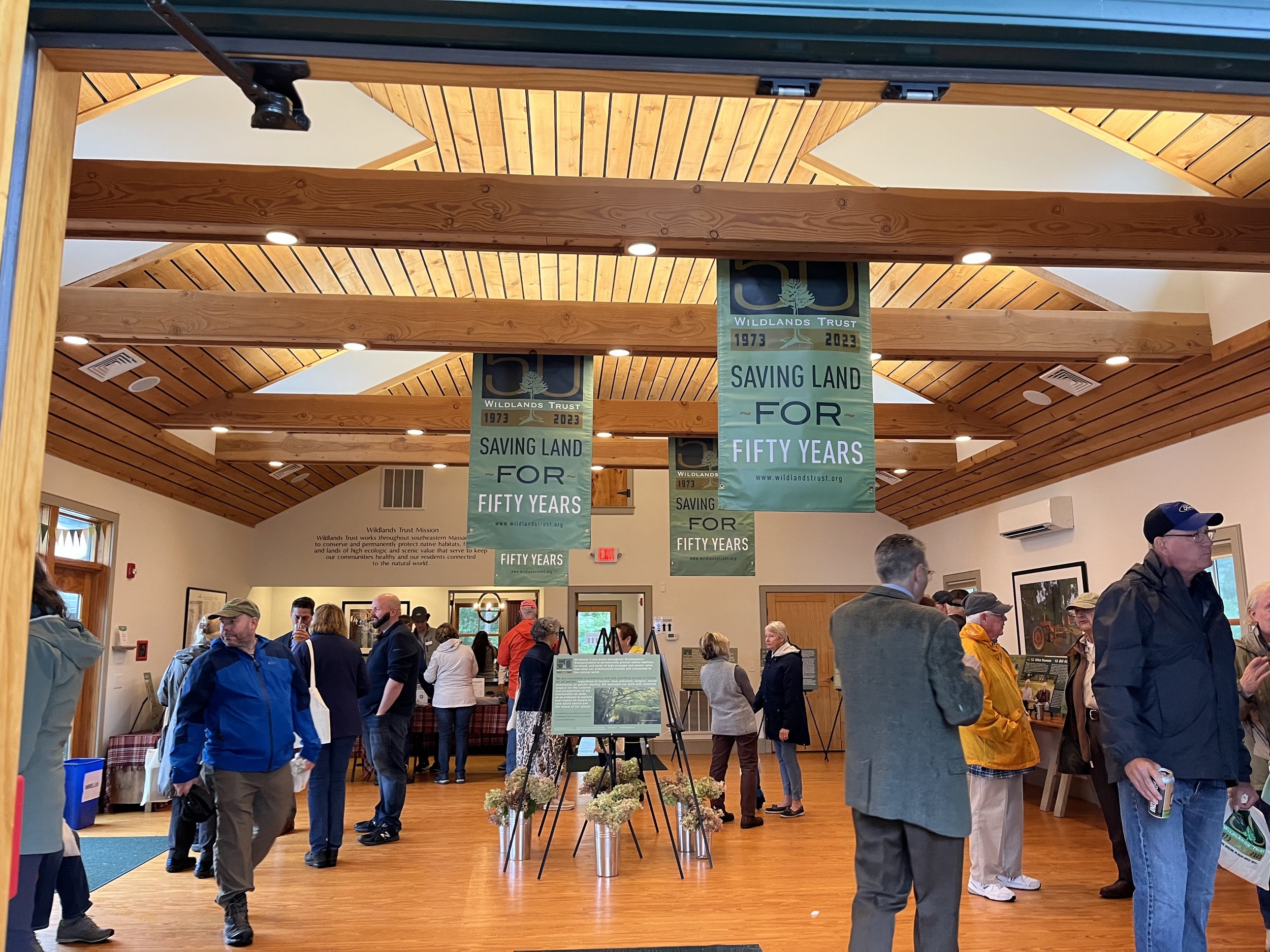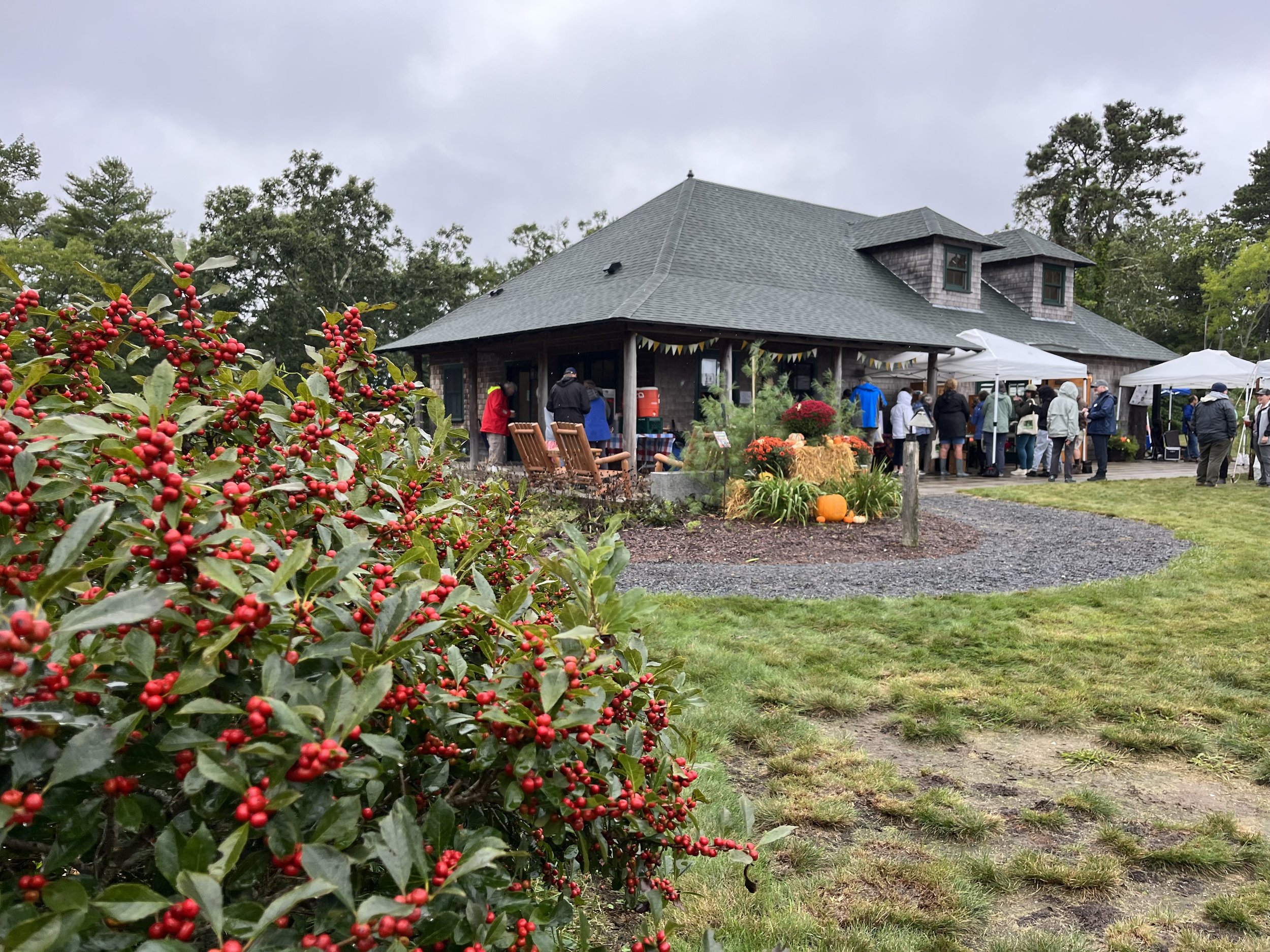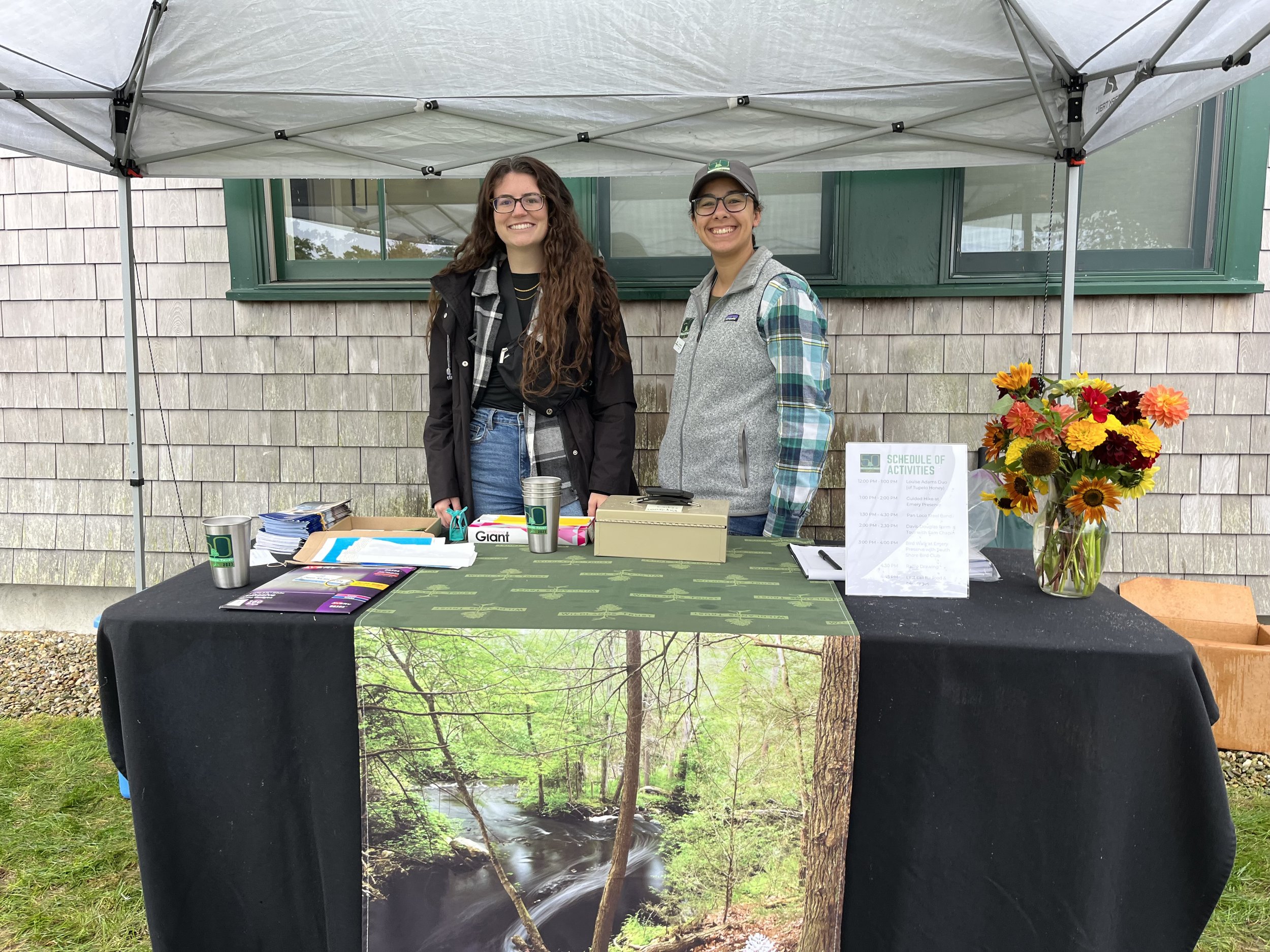Wildlands staff on a hike up Mount Tom in Woodstock, Vermont, during an October retreat.
By Thomas Patti, Communications Coordinator
For four days in October, the Wildlands staff took a short break from our daily duties to reflect and recharge from a busy summer amid the breathtaking autumnal woodlands of Bridgewater, Vermont. We returned to Plymouth rested and ready to elevate our service to the people and places of Southeastern Massachusetts.
“Putting together our 50th Anniversary Celebration in September was a full-staff, full-year effort that required new and veteran staff alike to go above and beyond their typical work duties and schedules,” said Rachel Bruce, Wildlands’ Director of Special Projects. “Taking a pause after such an undertaking and immersing ourselves in a new environment allowed our staff to better understand each other and our work in a broader context. This retreat aided us in fostering an environment of collaboration and creativity at Wildlands that will guide our work for the next 50 years.”
Before arriving in Bridgewater on Tuesday, October 10, we made a stop at the Vermont Institute of Natural Science (VINS) in Quechee. For 51 years, VINS has striven to “motivate individuals and communities to care for the environment through education, research, and avian wildlife rehabilitation.” We gained new perspective (literally) atop their Forest Canopy Walk, met avian ambassadors during a live raptor presentation, and drew inspiration for our work in Brockton from their own outdoor learning areas.
Wildlands staff atop the Forest Canopy Walk at the Vermont Institute of Natural Science.
On Wednesday, Josh Bower from Center for Wildlife in Cape Neddick, Maine, led our staff in team-building exercises at our home base in Bridgewater. Through fun, low-stakes exercises, we learned about the diversity of experiences on our staff, and how to use this asset to our advantage. Then, Craig Sanborn of the Cardigan Highlanders Volunteer Trail Crew taught us his lessons learned from 40 years of recruiting, training, and motivating land stewardship volunteers across New Hampshire. Finally, Kirk Jones of Evolvlove Sound Therapy led us in a meditative sound bath, using singing, crystal, and bronze bowls to promote deep relaxation.
We made good use of our last full day in Vermont. In a staff meeting led by President Karen Grey, we reviewed our five-year strategic plan, assessing our progress toward our goals and reaffirming our organizational values. Then, Suzanne Belleci and Fabio Ayala of the Amherst College Center for Restorative Practices presented “Approaches to Conflict Resolution,” a workshop that challenged our preconceived notions about interpersonal conflict and offered new paths forward. To end the retreat on a high note, we took to the mountains, hiking Mount Tom in Woodstock before exploring the city below.
Team-building exercises with Josh Bower from Center for Wildlife.
Around these scheduled activities, Wildlands staff had plenty of time to bond over shared meals, yoga workshops led by Rachel, and heated matches of foosball and ping pong, from which our multitalented President, Karen Grey, emerged victorious.
A full month since we returned from our retreat, the Wildlands staff is still benefiting from the camaraderie we built and the time we took out of our hectic schedules to take stock of our work and imagine a bold new future for regional conservation. We will continue to apply what we learned at the retreat to advancing our mission across Southeastern Massachusetts!




